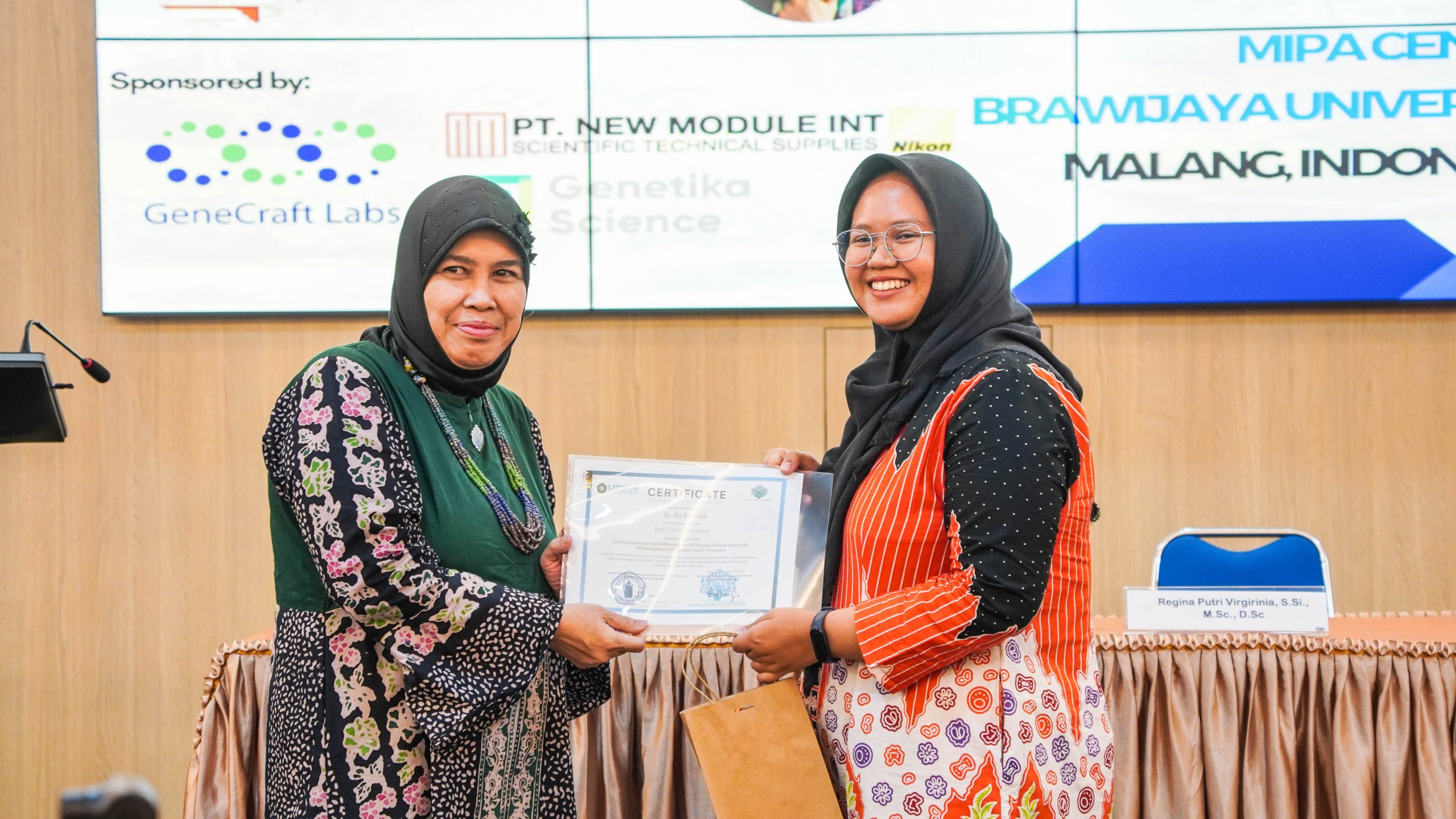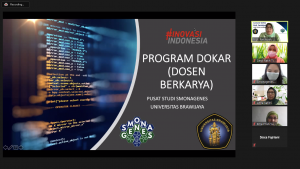The 5th ISSMART (International Seminar on Smart Molecule of Natural Resources) – AFOB (Asian Federation of Biotechnology) was successfully held hybrid on October 17-18th 2023 by Research Center SMONAGENES (Smart Molecules of Natural Genetics Resources). This year’s seminar brings up the theme “Smart Molecules and Advances Biotechnology for Human Life” and has been held annually since 2019. This year, ISSMART 2023 was given the opportunity to collaborate with the Asian Federation of Biotechnology (AFOB), and have speakers and participants from three countries and more than twelve institutions.
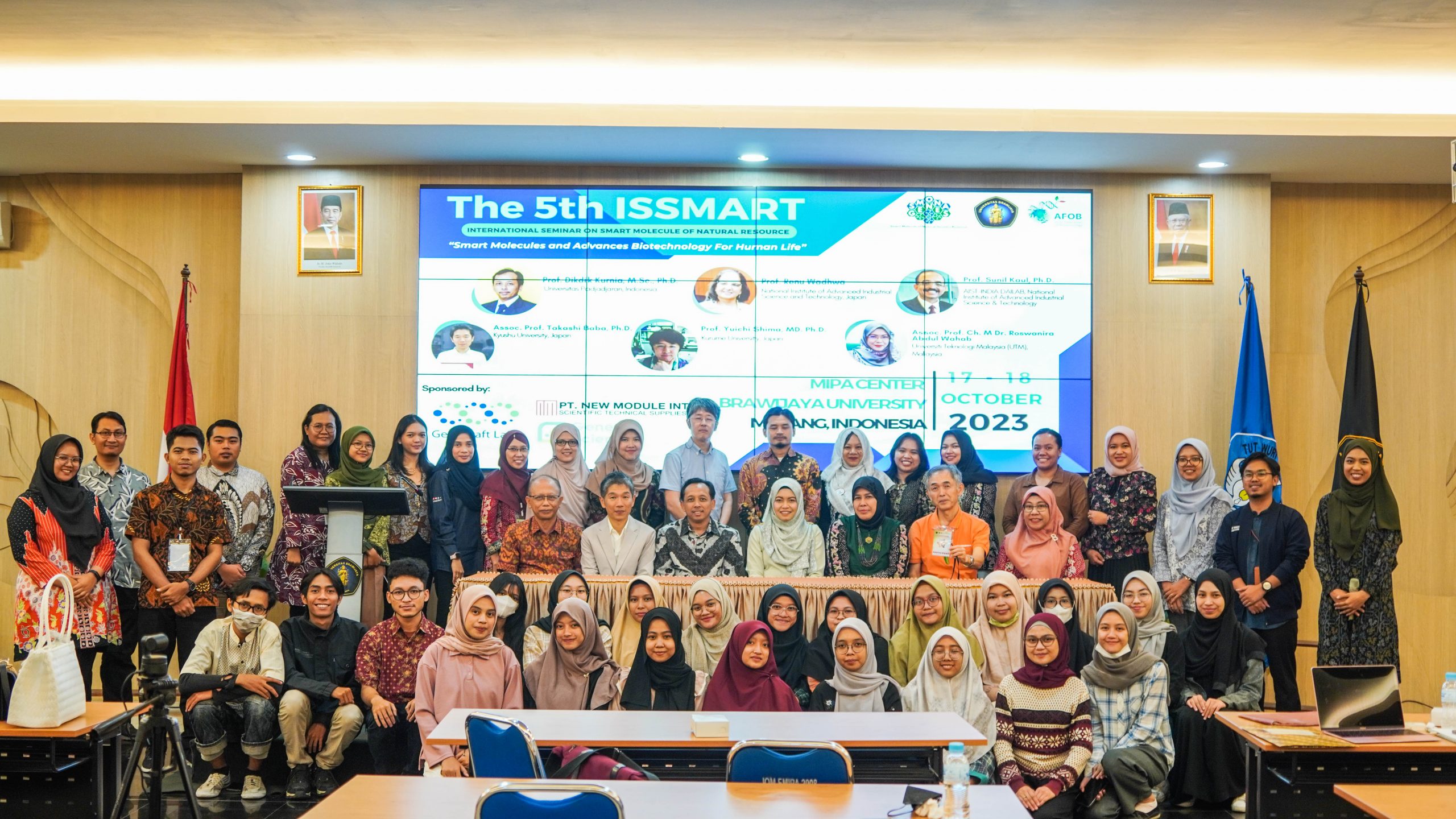
Around 170 people registered for this seminar, including 6 keynote speakers, 4 invited speakers, 33 presenting participants, and about 130 non-presenting participants. All the participants came from various areas of study and from different countries and institutions, including Japan, Malaysia, and Indonesia. Several institutions participated in this conference including Tokyo University of Agriculture, Kyoto University, University of Tsukuba, Kyushu University, Universiti Malaysia Terengganu, Malaysia Genome and Vaccine Institute-Universiti Teknologi Malaysia, and also various local universities and institutions including Badan Riset dan Inovasi Nasional (BRIN), Universitas Padjajaran, Institut Teknologi Sepuluh Nopember, Universitas Ibrahimy, IAIN Palangka Raya, Politeknik Kesehatan Kemenkes Malang, and Universitas Brawijaya.
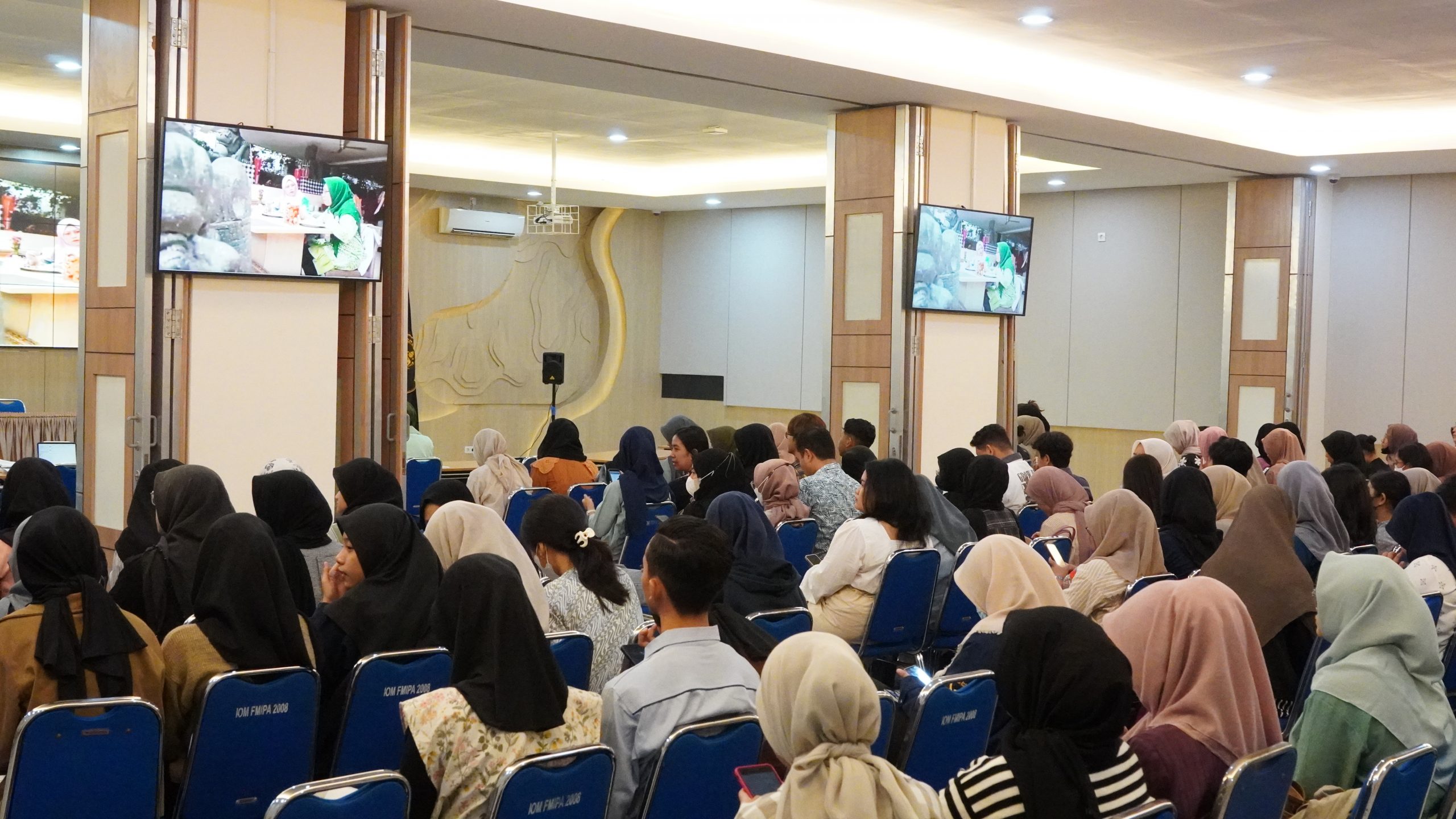
The seminar was held for two days and began with remarks and warm welcome from the chairman of the ISSMART – AFOB 2023 Committee, Prof. Fatchiyah, M.Kes., Ph.D. Then the seminar was opened by the Rector of Brawijaya University, Prof. Widodo, S.Si., M.Si., Ph.D.Med.Sc.
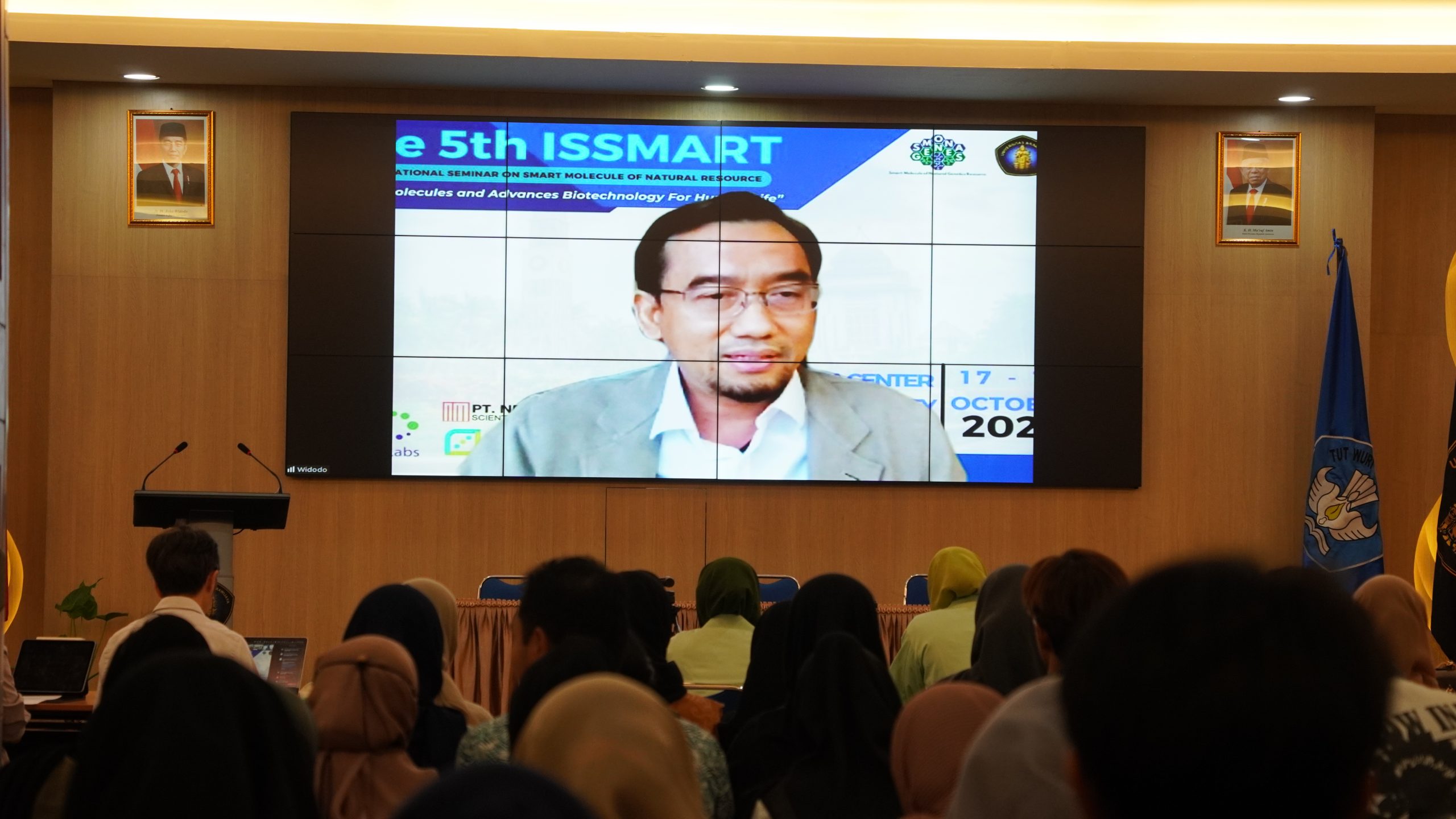
Six speakers were invited as Keynote Speakers in this seminar. There were Prof. Renu Wadhwa, Ph.D. (National Institute of Advanced Industrial Science and Technology), Prof. Yuichi Shima, MD., Ph.D. (Kurume University, Japan), Prof. Dikdik Kurnia M.Sc., Ph.D. (Universitas Padjajaran, Indonesia), Assoc. Prof. Takeshi Baba, Ph.D. (Kyushu University, Japan), Prof. Sunil Kaul, Ph.D. (AIST-INDIA DAILAB, National Institute of Advanced Industrial Science & Technology), and Assoc. Prof. Ch.M. Dr. Roswanira Abdul Wahab (Universiti Teknologi Malaysia, Malaysia).
Prof. Renu Wadhwa, Ph.D. opened the plenary session of the first day with an incredible talk on “Smart inhibitors of mortalin for cancer management: discovery to drug development”. Prof. Renu delivered interesting information on how mortalin can be a stress chaperone involved in carcinogenesis, and that the anticancer potential of synthetic and natural inhibitors of mortalin warrants further attention in laboratory and clinical studies. Then, Prof. Sunil Kaul continued the plenary session with a talk on “Anticancer and anti-stress activities of small molecules derived from Ashwagandha: from discovery to drug development”. Ashwagandha leaves have been proven to have anti-stress/anti-aging (and thus cancer-preventive) potential that may be useful in the management of environmental and age-related pathologies.
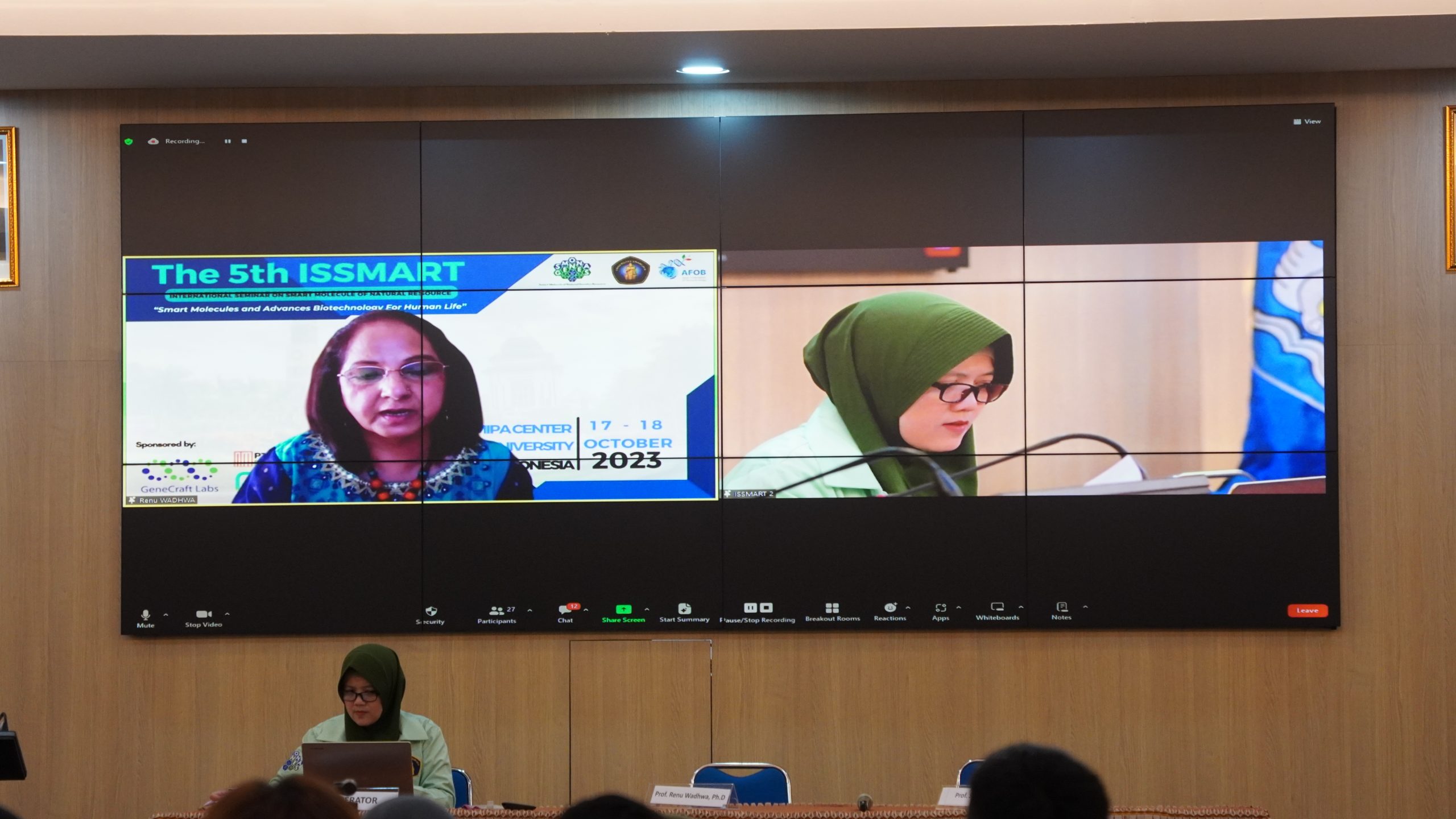
The next keynote speaker was Prof. Yuichi Shima, Ph.D., who was delivering a talk on “Roles of a nuclear receptor NR5A1 in the Hypothalammus-Pituitary-Gonadal (H-P-G) axis”. The NR5A1 expression in the H-P-G axis is governed by tissue-specific enhancers. Furthermore, Prof. Yuichi Shima said that NR5A1 contributes to the maintenance of reproductive function by regulating the expression of downstream genes specific to each tissue. Furthermore, our last keynote speaker of day 1 was Assoc. Prof. Takashi Baba, delivered a talk entitled “Deciphering cellular sex difference: insights from skeletal muscle and the adrenal glands”. Assoc. Prof. Takashi Baba reported that glucocorticoid receptors are expressed in nearly all cells throughout the body, and it is plausible that glucocorticoids originating from the adrenal glands also play a role in the establishment of sex differences in cells other than skeletal muscle. The discussion session was full of excitement and curiosity from the audience, asking questions to the speakers.
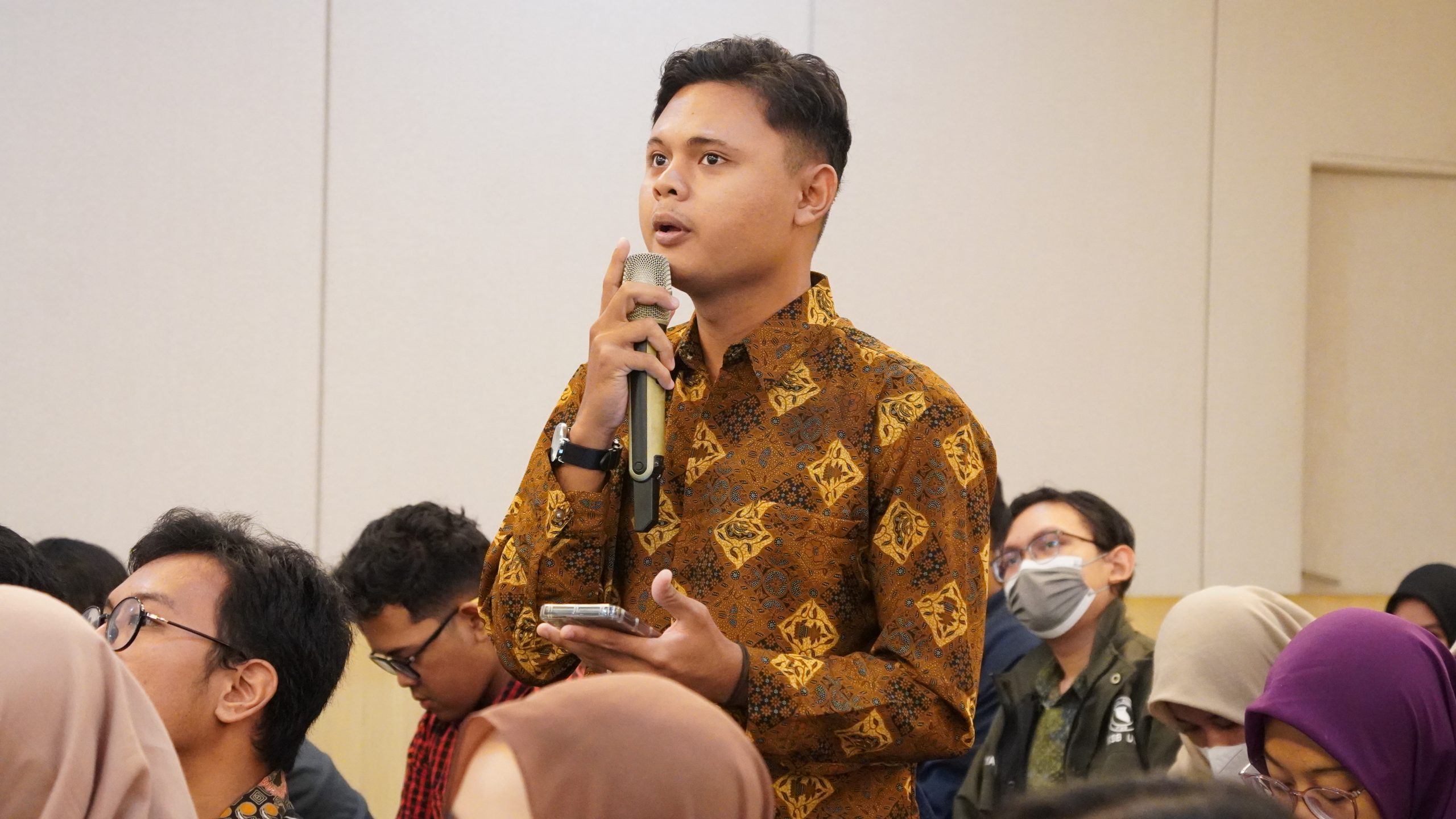
The amazing talks of the day didn’t stop there. There were 2 invited speakers who delivered their speeches afterward. Tomohiko Sasase, Ph.D. was giving an interesting talk on “Pathophysiology of ocular diseases in the Spontaneously Diabetic Torii (SDT) fatty rat, an obese animal model of type 2 diabetes”, while Ir. Ida Bagus Wayan Gunam, MP., Ph.D. was giving a talk on “Combination treatment in bioethanol production from inedible wild cassava flour (Manihot glaziovii Muell. Arg) using co-culture techniques”.
The first day of ISSMART ended with around thirty participants’ presentations and discussions at the MIPA Centre Building, Brawiijaya University, Malang, Indonesia, as well as online, which were connected hybrid via the Zoom Meeting platform. The 5th ISSMART-AFOB 2023 was participated by dozens of speakers from local and abroad universities with various scientific topics, which are biochemistry, bioinformatics, biophysical engineering, herbal medicine, nutrigenomics & nutrigenetics, medical physics, molecular biology, and neurosciences.
The ISSMART 2023 event was also successfully held on the second day, October 18th, 2023. The plenary session was opened by two talks of our keynote speakers. Prof. Dikdik Kurnia, M.Sc., Ph.D. was delivering his talk “Enzymatic synthesis of β-glucogallin by Os9BGlu31 transglucosidase and evaluation of its anti-cancer activity in cholangiocarcinoma cells”. Prof. Dikdik Kurnia, M.Sc., Ph.D. reported that there was an increasing trend in the usage of medicinal raw materials in Indonesia. On the other hand, our second keynote speaker, Assoc. Prof. Ch.M Dr. Roswanira Abdul Wahab, reported the suitability of the nanoemulsions using Pouteria campechiana, Ananas comosus peels, and raw Elaies guineensis leaves extracts as a cream for topically applied cosmeceuticals.
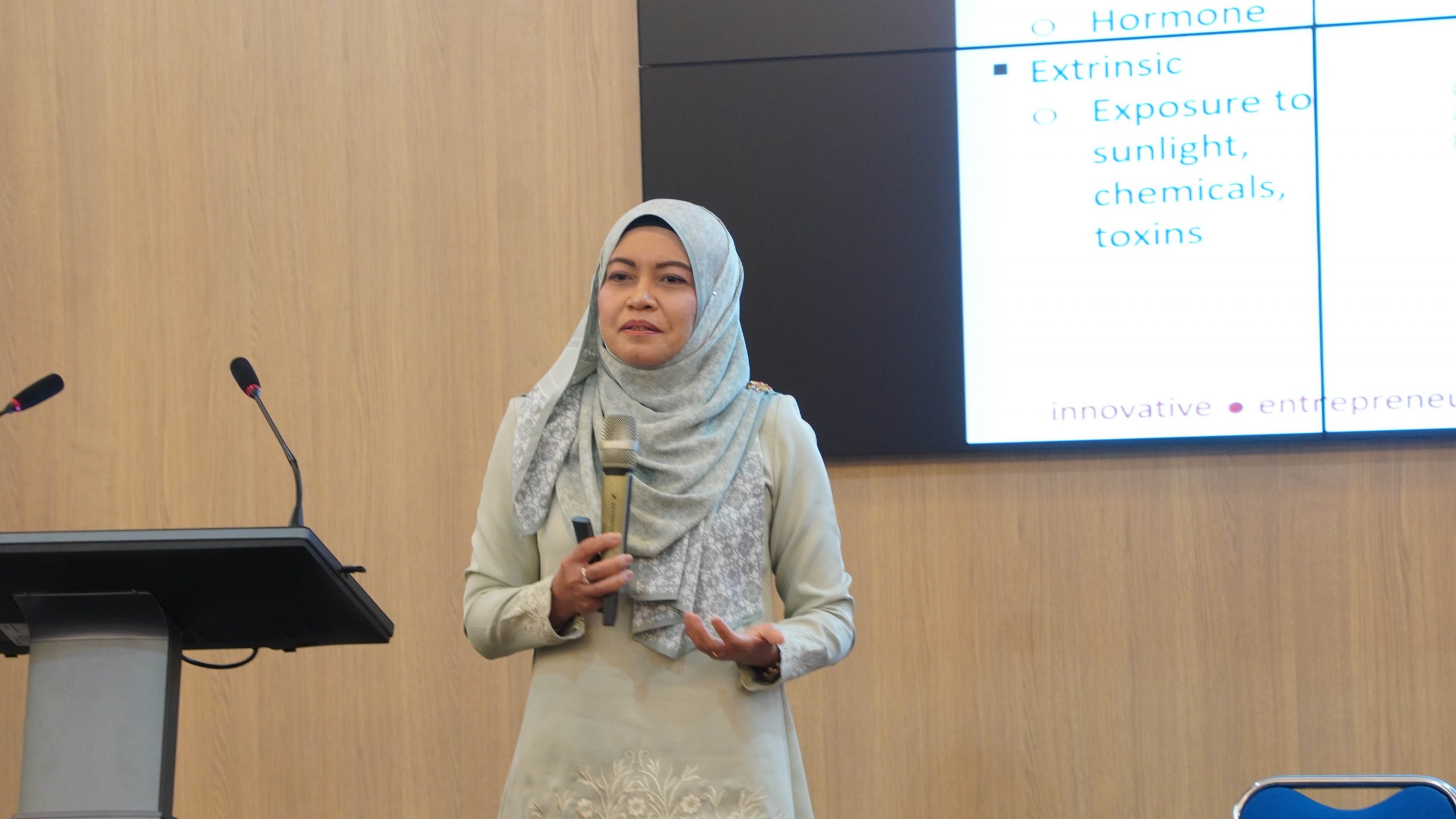
On the second day of ISSMART-AFOB 2023, there were also two invited speakers who delivered their research in the seminar. Eko Suyanto, S.Si., M.Sc., Ph.D. delivered a talk on “Enzymatic synthesis of β-glucogallin by Os9BGlu31 transglucosidase and evaluation of its anti-cancer activity in cholangiocarcinoma cells”, while our second invited speaker was Regina Putri Virgirinia, S.Si., M.Sc., D.Sc. who discuss a lot about the “Investigation of the role of Clk family proteins in Xenopus neural development”.
At the end of the event, awards were given as a form of appreciation to the four most active participants with the best presentations. This conference was closed by the secretary of the Research Centre of SMONAGENES, Assoc. Prof. Anna Safitri, Ph.D. who also expressed her gratitude for the contributions of all speakers and seminar participants so that the ISSMART-AFOB 2023 can be held well and left with good memory.
